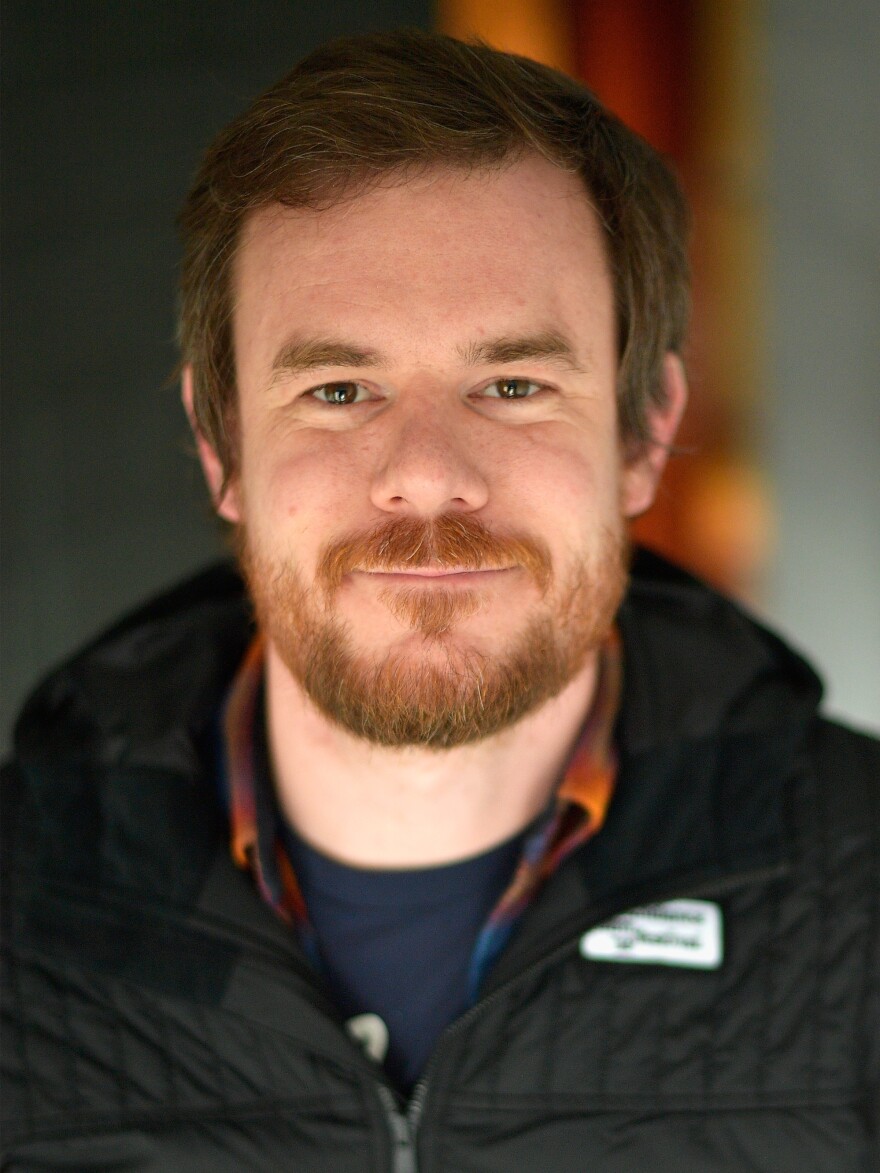The Netflix anthology show Easy deals with topics that are anything but: searching for love, navigating relationships, seeking knowledge of ourselves — and sometimes looking for it in other people. The show's third and final season is out now on Netflix.
Its creator, writer and director, Joe Swanberg, has a naturalistic filmmaking style with a lot of improvisation — it's often categorized as part of a movement called "mumblecore." In an interview, he says he had to translate that style into something authentic for TV.
"TV, in some senses, drives me crazy, because you're stuck in this loop with the same characters," Swanberg says. "So the vibe and anthology nature of Easy — you know, pretty much everything about the show — came from things I didn't want to do, and then doing the things that were left."
That approach helped him create characters — like the married couple in Easy experimenting with an open relationship — that are layered and complex. Those sorts of characters have become something of a signature.
"All my characters to me feel like they are doing their best to be kind, interesting, generous people," Swanberg says. "And yet they still run into all of these troubles.
"I think I've spent my career fascinated by relationships, how we navigate them, the kind of ways in which we're programmed by our parents and our upbringing, the ways that we rebel. All of these things filter into the show as these characters really, you know, try their best, but still just run into all of these issues. And to me, those issues are funny, you know what I mean? I think you have to laugh at them."
Interview Highlights

On mumblecore
It describes a lo-fi, punky aesthetic. And a lot of filmmakers like the Duplass brothers, Lena Dunham, Greta Gerwig — you know, a lot of people that are big directors now — at the time we were all in our 20s and making these loose, rambling, relationship movies. Mumblecore was the catchall idea behind this affiliation. The word itself — I mean, if I heard "mumblecore," I would roll my eyes and want nothing to do with it. But it did end up defining us and being a big part of those years and that collection of filmmakers.
On how much of his work is scripted
It is very improvised on my end. That's not true of everyone who's affiliated with the mumblecore genre. But for me, the films and Easy, the television show, is entirely improvised. So with Easy, I usually write a three-or-four page outline describing a scene, but no written dialogue or anything like that. And then my actors and I will talk through it, and then they'll improvise takes, and we'll figure it out from there.
I started working that way because I didn't want to put words in characters' mouths. I always felt: Wow, it'd be really interesting if these characters just spoke for themselves.
And with something like Easy now, it's much more of an anthologized television show. We only have four days to shoot each episode, so they're a little more scripted in the sense that I have to know what's coming. But the dialogue is all still improvised, and I create as much space in the schedule as possible for the actors to discover things on set, and for us to shift and adjust to those discoveries.
On if his style makes uncomfortable moments more authentic
I ask myself that all the time. You know, coming up with the limitations that I had where we were making extremely low-budget movies — I mean, when I started out, my movies cost $5,000, $10,000 for a feature film. So I didn't have the resources to hire incredible trained actors. I was mostly working with friends and people who didn't have much on-camera experience. And so we were really learning to make movies together, and I always felt that that improvised, low-key process allowed those non-actors to give really amazing performances. We created the right balance of realism, and then also a little bit of an escape hatch to change things and still feel like they were playing a character.
On what's next
I don't know. I had an incredible experience making Easy, so if I could do something like that I would absolutely dive right back into television. But a part of me feels like I struck gold, you know? I really found an idea that was a perfect fit for how I like to make things. Netflix was just incredible; they gave us a ton of freedom. I mean, this show is improvised. They gave me money and did not know what we were going to do each episode. It really was a dreamy scenario. So I don't know that I'll get that lucky again right away, so I may go back to the movie world for a little bit, and then see if I can find another TV idea that is this inspiring for me.
Sydney Harper and Amara Omeokwe produced and edited this interview for broadcast. Patrick Jarenwattananon adapted it for the Web.
Copyright 2021 NPR. To see more, visit https://www.npr.org.



